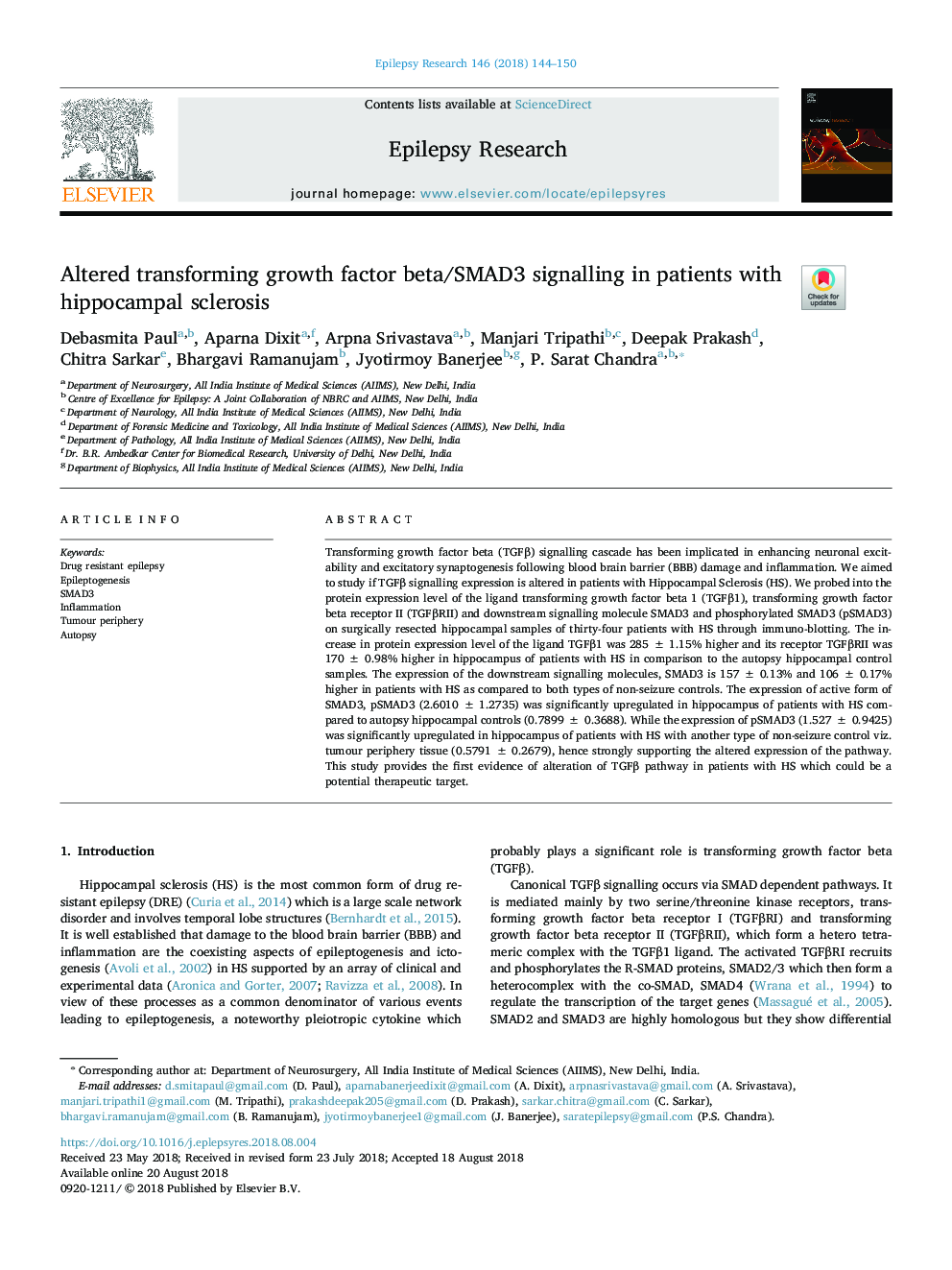| Article ID | Journal | Published Year | Pages | File Type |
|---|---|---|---|---|
| 9988859 | Epilepsy Research | 2018 | 7 Pages |
Abstract
Transforming growth factor beta (TGFβ) signalling cascade has been implicated in enhancing neuronal excitability and excitatory synaptogenesis following blood brain barrier (BBB) damage and inflammation. We aimed to study if TGFβ signalling expression is altered in patients with Hippocampal Sclerosis (HS). We probed into the protein expression level of the ligand transforming growth factor beta 1 (TGFβ1), transforming growth factor beta receptor II (TGFβRII) and downstream signalling molecule SMAD3 and phosphorylated SMAD3 (pSMAD3) on surgically resected hippocampal samples of thirty-four patients with HS through immuno-blotting. The increase in protein expression level of the ligand TGFβ1 was 285â±â1.15% higher and its receptor TGFβRII was 170â±â0.98% higher in hippocampus of patients with HS in comparison to the autopsy hippocampal control samples. The expression of the downstream signalling molecules, SMAD3 is 157â±â0.13% and 106â±â0.17% higher in patients with HS as compared to both types of non-seizure controls. The expression of active form of SMAD3, pSMAD3 (2.6010â±â1.2735) was significantly upregulated in hippocampus of patients with HS compared to autopsy hippocampal controls (0.7899â±â0.3688). While the expression of pSMAD3 (1.527â±â0.9425) was significantly upregulated in hippocampus of patients with HS with another type of non-seizure control viz. tumour periphery tissue (0.5791â±â0.2679), hence strongly supporting the altered expression of the pathway. This study provides the first evidence of alteration of TGFβ pathway in patients with HS which could be a potential therapeutic target.
Related Topics
Life Sciences
Neuroscience
Neurology
Authors
Debasmita Paul, Aparna Dixit, Arpna Srivastava, Manjari Tripathi, Deepak Prakash, Chitra Sarkar, Bhargavi Ramanujam, Jyotirmoy Banerjee, P. Sarat Chandra,
